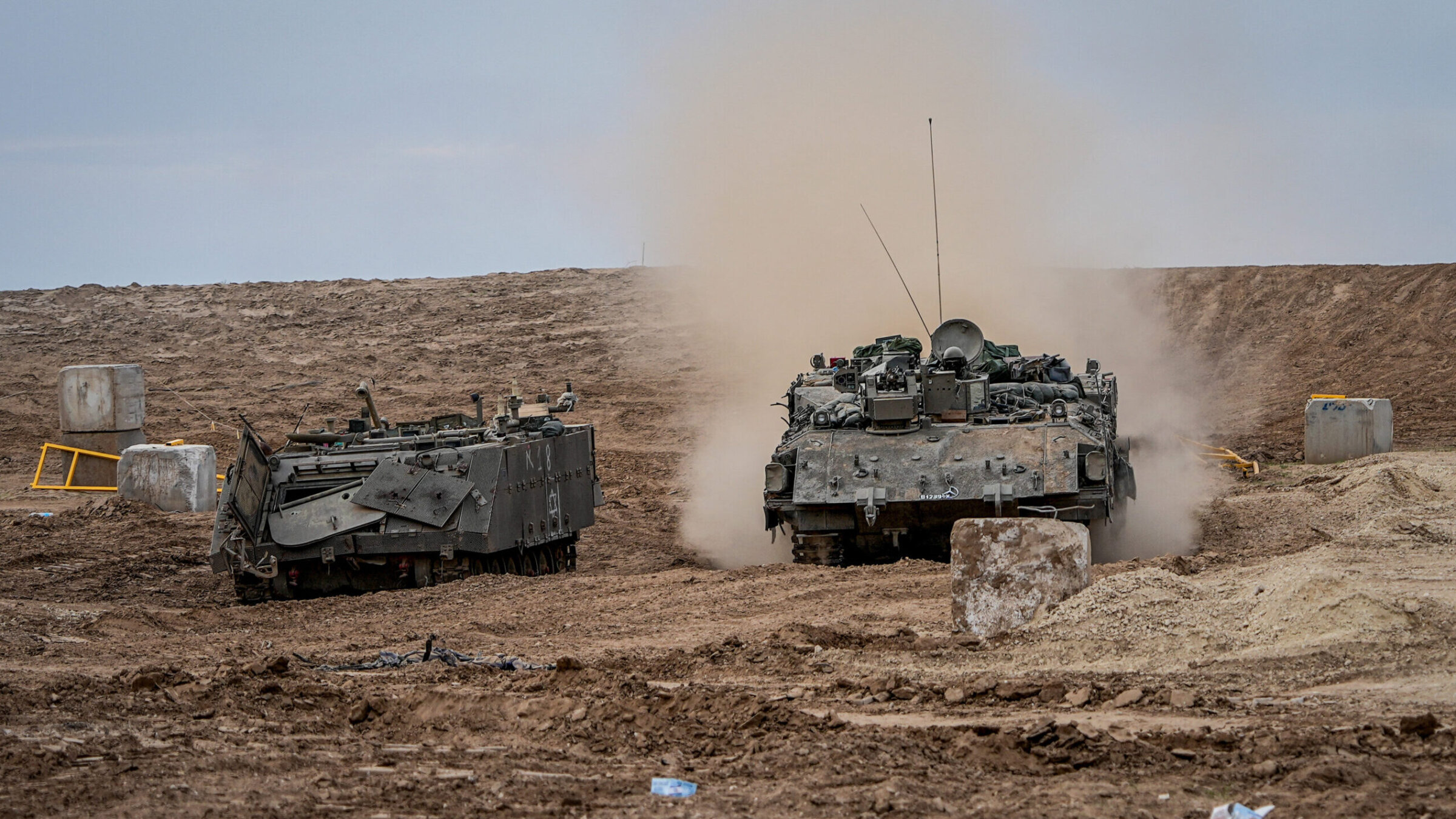Israeli forces mistakenly kill 3 hostages during fighting in Gaza, IDF says
The soldiers mistakenly identified the hostages as a threat during fighting on Friday in Shejaiya, a neighborhood that is a Hamas stronghold in the Gaza City area

Israeli soldiers seen at a staging area near the Israeli-Gaza border, southern Israel, November 30, 2023. (Flash90)
(JTA) – Israeli soldiers accidentally killed three hostages during combat in Gaza, an Israel Defense Forces spokesman said.
The soldiers mistakenly identified the hostages as a threat during fighting on Friday in Shejaiya, a neighborhood that is a Hamas stronghold in the Gaza City area, said Rear Adm. Daniel Hagari, the IDF spokesman
After combat in the area, troops conducted a sweep and found the bodies, “raising suspicions about their identity,” Hagari said in a statement posted on X, formerly known as Twitter. The bodies were taken to Israeli territory and identified as Israeli hostages.
The hostages were identified as Yotam Haim, who was captured from Kibbutz Kfar Aza, and Samer Talalkah, who was taken from Nir Oz, both on Oct. 7. The third hostage was not identified due to a request from the family. The families were notified of the hostages’ deaths by representatives from the IDF and Israel Police.
Earlier Friday, the IDF said troops had recovered the bodies of three other hostages, including two soldiers and one civilian. All were captured by Hamas on Oct. 7.
The hostages’ killings occurred two weeks after fighting in Gaza resumed following a seven-day truce. During that pause in combat, Hamas released more than 100 hostages in exchange for hundreds of Palestinians in Israeli prison on security offenses. Israel estimates that Hamas is still holding more than 130 hostages.
In the period since the truce, the families of the remaining hostages have pressured the Israeli government to resume negotiations toward their release, marching on Israel’s parliament earlier this week. Some of the protesters expressed worry that their relatives would be killed if a deal was not reached.
“This is a sad and tragic event that pains us all,” Hagari said at a press briefing. “The IDF expresses its deep sorrow over the incident and shares the grief of the families.”
The incident occurred in an area that has seen heavy combat in recent days, said Hagari, who added that it would be investigated. IDF troops had encountered enemy combatants including suicide bombers who were otherwise unarmed, and ambush attempts, in the area of the killings.
The three hostages were apparently on their own before they were killed, Hagari said. In response to a reporter’s question, Hagari said it was still unclear if the hostages had escaped their captors or been abandoned.
Friendly fire between Israeli troops had already caused casualties among Israeli soldiers ahead of the hostages’ deaths. On Tuesday, the IDF released data indicating that 20 troops had been killed by friendly fire and other accidents, the Times of Israel reported. The figure amounted to nearly 20% of the 105 military deaths at the time.
The deaths were caused by Israeli forces mistakenly identifying their own as enemy combatants, errant gunfire, armored vehicles running over troops, and shrapnel from Israeli explosives hitting Israeli soldiers.
The number of soldiers killed since the beginning of Israel’s ground invasion of Gaza rose to 119 on Friday, when the IDF said that three soldiers were killed in combat.
The deaths come as Israeli forces continue intense airstrikes and ground fighting in Gaza, which has elicited heavy international pressure to stop the fighting.
Israel has vowed to press on with the campaign to destroy Hamas after the terror group invaded on Oct. 7, killing an estimated 1,200 people, mostly civilians, and committing numerous other atrocities.
The Hamas-run Gaza Health Ministry says more than 18,000 people have been killed in Gaza. The figure cannot be independently verified, and does not distinguish between civilians and combatants, or those killed by errant Palestinian rockets. The IDF says it has killed thousands of enemy fighters in the campaign.
This article originally appeared on JTA.org.





















